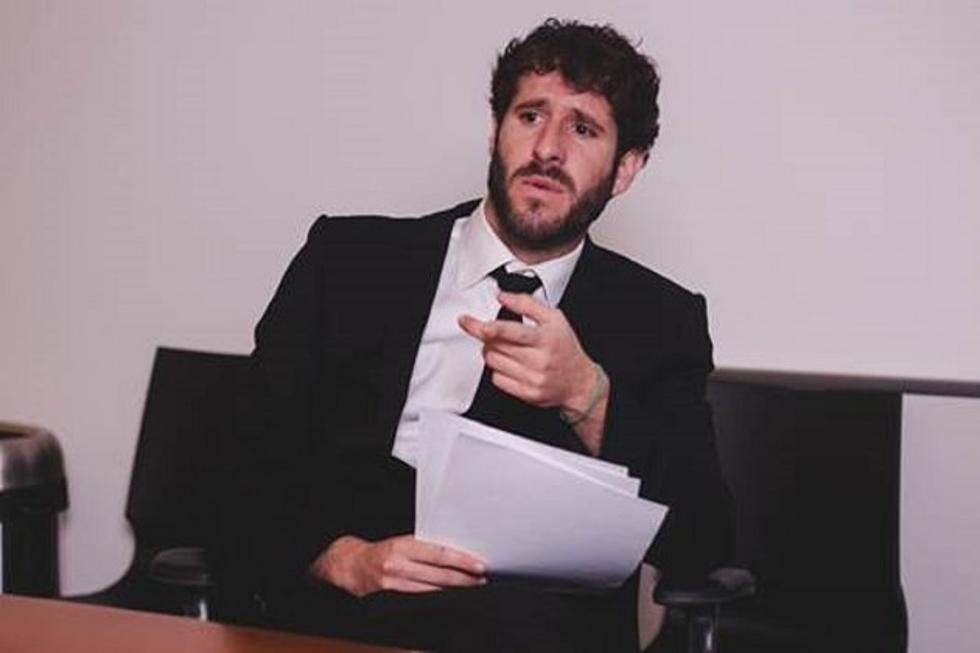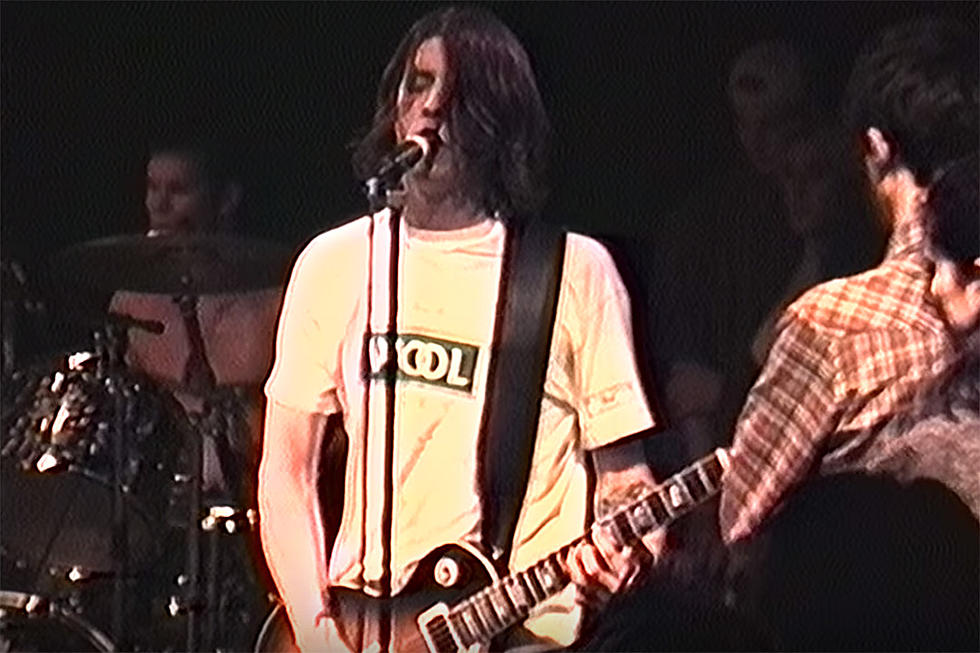
Lil Dicky Talks About His Debut Album + His Awkward Rap Name
You might know Lil Dicky from his hilarious YouTube videos that have over a million views each – the most popular being the clip for his track "Ex-Boyfriend." The former marketing and advertising professional realized his musical potential after delivering a presentation at work in the form of a rap video. The Philadelphia-born and California-based rapper-comedian has rapidly gained popularity since the launch of his music career and he's even won respect from the rap community – not just for his ability to rhyme, but for his knack for composition. His upcoming debut full-length, Professional Rapper, (due out July 31 via CMSN/Dirty Burd Inc.) features some of rap's biggest names, including Fetty Wap and Rich Homie Quan. We met up with Lil Dicky at the Warner Music office in Times Square to discuss everything from his rise to stardom to the album and how awkward it is to tell people his rap moniker.
Being that you started out as a comedy rapper, has the seriousness of your music changed in any way?
Yeah, it's definitely changed. I didn't actually have a comedy background, my friends just thought I was funny. I wanted to get noticed for being funny, so the first mixtape I made – which was my only project out – was designed to have musical integrity, for sure, but mainly to be funny. Now I think I have a lot more pride in the musicality of it. I've always had pride in it, but now I think I just take it a little more seriously. I think there's a misconception where it's like, "Oh, he's being funny. I shouldn't take this seriously." But I think there's a certain skill set behind it. I want to check two boxes at once. That's my goal.
Were you always fond of rap and hip-hop?
I think so. I've always listened to rap and hip-hop. I was into alternative and '90s rock, too, and I still love John Mayer and bands like the Goo Goo Dolls. But if you ask me what my favorite music has been over the last 10 to 15 years, I would say rap first every time.
How did you learn to rhyme so fast and perform in a live setting?
I've always been a good writer, so I remember when I was in writing class, I would write poems. As far as rapping intricate flows and what not, the more you do it the better you get. You learn what you're capable of and what you're not capable of, how you sound doing this and that. It really works like basketball, or any sport. The more you do it, the more you're able to figure out your game, so to speak. Performing just kind of came naturally to me for whatever reason, which is a surprise to me. I never did karaoke or anything like that. I wasn't into it. I've always been good at talking. My ability to talk in between songs [on stage] doesn't surprise me at all. But, yeah, rapping in a live setting is a different animal for sure. But I think I do it pretty well. I don't use my backing tracks, I just rap. It's physically exhausting. Before I did my first concerts, I rented a studio for, like, a month in San Francisco and practiced at least twice a week because I had never rapped in front of more than three people before. I wanted to make sure I didn't look like a clown. Even going into my first show, I didn't know what to expect, but I think it worked out well.
Being that your aim is to rap about everyday things mainstream rappers don't rap about, isn't it ironic that you've featured professional rappers like Fetty Wap on your debut album?
No, I don't think so. First off, it all depends on context. The way we work together is very endemic to who they are as people, and each song tells a certain story or has a certain dialogue. It's not like we just threw in a Fetty Wap verse and that's it. I try to have them play with my concepts, it's rarely just a rapper giving me his 16 bars that are about whatever. There's a very specific theme.
What can your listeners expect to get from Professional Rapper?
[They can expect] 16 songs that are really all over the place in terms of the style of hip-hop. One song I'm singing, one song I'm rapping like a cypher, one is a serious love song about my ex girlfriend and another is a job interview. I show off my repertoire. I feel like I can rap in a lot of different ways. So, one thing I could say is that it's diverse. Another thing I could say is that it's a throwback album in the way that it has a great intro, interlude and a great outro. I tried to make a cohesive album. I think it's as close to a concept album as you can get. If a Hendrix album is a concept album, then this could be a concept album. It's a concept album mixed with a classic '90s hip-hop album.
Being that you seem like a laid back, non-blue-collar type of guy, what was your first impression of working in the real world out of college?
I worked for the most liberal place – an ad agency, especially where I worked at in San Francisco – is not your typical desk job. But I did have two jobs there. One of them was in the account management department, which was like the bitch work and the interfacing between clients. That was for two years and it was really intense because there are huge clients and you're basically the biggest bitch in the building. You have to work more hours than anybody. But then I switched to the creative department and that couldn't have been more laid back, so to speak. So I kind of got two worlds there, but the agency itself had like a vending machine with 25 cent beers and, if I drank a beer at any point in the day, nobody would say anything. So it's not like a typical job, but it's still a complete departure from being a rapper.
Now that you're getting a bit more serious, do you ever regret your rap moniker?
No, I don't regret it. I think it works. If someone ever asks me my rap name, though, I never say, "It's Lil Dicky." [Laughs.] I like LD. Dicky is cool, I guess. No, I don't regret it. I think it works really well. It's absurd, but I like its absurdity. I also like the rap name, Young Man, so that's the only thing that I'd potentially change it to. But I think Young Man is more of a product of its time and I could still call myself Young Man the way Jay-Z calls himself "Hov." So, no regrets, but I'll never introduce myself as Lil Dicky. I hate when people ask me what my rap name is. I hate it. I imagine other people having the same issues when they're talking about me too.
If it wasn't for YouTube, would you be as big of a deal as you are now?
No. Sometimes I ask people what era they would have thrived in the most. Would you have thrived in the '70s or the '40s? I think the era that I would thrive in is now – this exact era. I just happened to be born during my time and I'm completely grateful. There's no way 10 years ago I would have even been discovered as like a local rapper. Never. I've 100 percent relied on YouTube. I think I would have taken a whole new approach, maybe not even rapped. Who knows? The digital age was critical to me.
More From Diffuser.fm









